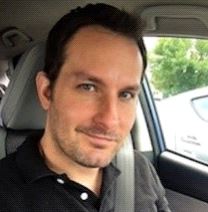
Kurt Braddock Ph.D.
Ph.D., Assistant Professor, School of Communications, American University
2022
Kurt Braddock is an Assistant Professor of Public Communication in the School of Communication at American University. Kurt also holds faculty fellow positions at the SOC’s Center for Media and Social Impact (CMSI) and the Center for University Excellence’s Polarization and Extremism Research and Innovation Lab (PERIL). His research focuses on the persuasive strategies used by violent extremist groups to recruit and radicalize audiences targeted by their propaganda. Kurt also explores how theories of communication, persuasion, and social influence can be used to inform practices meant to prevent radicalization among vulnerable audiences. His first book, titled Weaponized Words: The Strategic Role of Persuasion in Violent Radicalization and Counter-Radicalization (Cambridge University Press, 2020), provides examples of how terrorist groups persuade audiences to adopt their ideologies, and how this process can be fought. Kurt is presently interested in the development of communicative counter-radicalization strategies that prevent white supremacism, neo-Nazism, and the adoption of other violent far-right ideologies.In addition to publishing his work in key communication and security journals (e.g., Communication Monographs, Terrorism and Political Violence, Studies in Conflict & Terrorism), Kurt also provides input to key institutions in D.C. to inform how they fight terrorism. Some of these institutions include the U.S. Department of State, the U.S. Department of Homeland Security, and the U.S. Department of Defense. His work has also been used at the international level, where Kurt has advised the U.K. Home Office, Public Safety Canada, the United Nations Counterterrorism Executive Directorate, and others.

This cannot be thought of as a conference or a summit. The stakes are simply too high and the data/conversation and methods to drive action more valuable/motivating than any gathering I have attended. I took more than 100 pages of notes and have shared them with my CBS News leadership team, anchors, producers, and correspondents. Nothing about this gathering was easy. The agony around this topic is real. But no one curious about it could ask for a more devoted, rational, or unflinching look into this dark but decipherable world.
